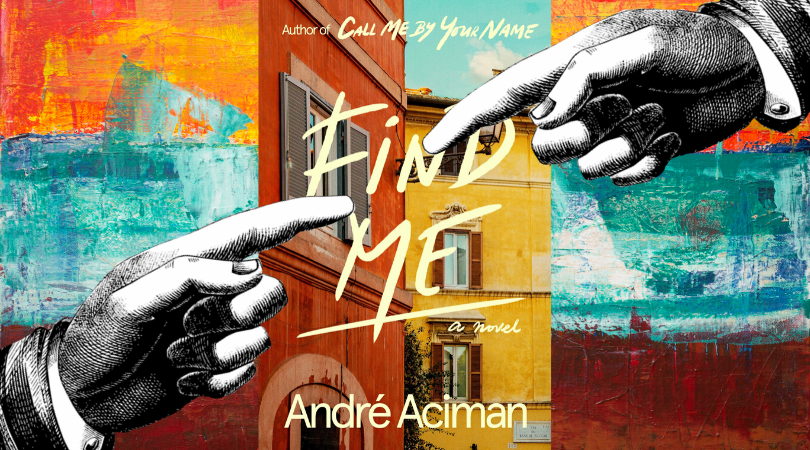
There are few things the literary community relishes more than the appearance of a polarizing high-profile book. Sure, any author about to release their baby into the wild will be hoping for unqualified praise from all corners, but what the lovers of literary criticism and book twitter aficionados amongst us are generally more interested in is seeing a title (intelligently) savaged and exalted in equal measure. It’s just more fun, dammit, and, ahem, furthermore, it tends to generate a more wide-ranging and interesting discussion around the title in question. With that in mind, welcome to a new series we’re calling Point/Counterpoint, in which we pit two wildly different reviews of the same book—one positive, one negative—against one another and let you decide which makes the stronger case.
Over a decade ago, Whiting Award winner André Aciman published his debut novel, Call Me By Your Name. It is the story of a whirlwind romance between a young man named Elio and a visiting scholar staying with his family named Oliver. You probably recognize the title because of its wildly successful 2017 film adaptation. Images of Timothée Chalamet and Armie Hammer falling in love are probably dancing through your mind right now. While the book was met with predominantly rave reviews, the reception to the much-anticipated sequel, Find Me, has been somewhat mixed.
Find Me revisits the same cast of characters decades after their initial meeting. Some reviewers seemed thrilled to return to them. In a review for Library Journal, Sally Bissell highly recommends the novel, saying, “In sensuous prose, Aciman creates honest relationships unfettered by age, gender, or time.” Michael Cart writes, in Booklist, “Its treatment of the characters’ psychology is astute and insightful.”
However, others expressed skepticism over the sequel. The Guardian‘s John Boyne says, “While the elegance of his prose and the sophistication of his characters are to be admired, his creations rarely seem human, speaking in a pompous fashion.” In The Wall Street Journal, Emily Borrow writes, “Literary sequels are tricky. When a book is beautiful enough to stoke demands for more, it probably means the author should leave well enough alone.” Sam Huber in The Nation blatantly states, “The book is bad. Its prose runs purple, with baroque clichés about love, regret, and time’s passage failing to compensate for a dearth of revelation about any of these themes.”
Today we’re looking at Charles Arrowsmith’s more positive review in The Washington Post, who warns warmly, “There are moments, particularly in the final chapter, that may have readers gazing tearfully into their fireplaces.” On the other hand, we’ve got The New Yorker‘s Katy Waldman, who says, “Never has a whirlwind romance felt so interminable.”
What do you think, reader? Will you fall in love with Find Me?
*
For a moment she looked so totally forlorn that, while staring at my open book, I caught myself struggling to come up with something to say, if only to help defuse what had all the bearings of a gathering storm about to erupt in our little corner at the very end of the car.
“… thoughtful … Aciman, a famous Proustian, is clearly interested in the diffusive action of time and the heartaches of temps perdu. His keen sense of what’s lost or missing, even in a happy new relationship, allows Find Me to dodge, at least in part, the sentimental imperative that mars many sequels. Its bittersweetness is welcome … A certain preciousness has some benefits. Aciman’s quiet, label-free presentation of bisexual life represents a minor triumph, respectfully embracing the mystery of the desires of others. Likewise, his refusal to offer easy resolution, which infuses the whole romantic enterprise with a kind of delicious melancholy. There are moments, particularly in the final chapter, that may have readers gazing tearfully into their fireplaces, real or imaginary, just like Timothée Chalamet at the end of Luca Guadagnino’s superlative film of Call Me by Your Name. It can be hard to go home.”
–Charles Arrowsmith, The Washington Post
“These characters are so unreal—she a wet dream, he a cipher—that any specificity at all becomes embarrassing, as if Aciman were revealing his particular turn-ons … This points to a bigger problem with the book: since all of the narrators are in love and interact mainly with their lovers, the only opinions we ever hear expressed about these people are sweaty and rapturous. The result is a novel that feels besotted with its characters despite scant evidence of their charms. The sex writing itself is unfortunate … Never has a whirlwind romance felt so interminable … The leads in Call Me by Your Name were self-conscious and soulful, but they also scanned as sweet and curious; theirs was the insufferability of youth … That universality has fled from Find Me, which feels alternately too vague, too offensive, and too ridiculous to do anything but place one’s empathic imagination on a rack until one surrenders to one’s own contempt … The relationships in Aciman’s novel, be they transient or lasting, are marked by an affinity that tends to deepen through conversation, though it requires no words. It is all the more ironic, then, that this reviewer’s experience of Find Me was one of such profound disattunement. The book wants to be intimate, profound, but it reads as glib and remote, impervious to actual feeling. Indeed, the text seems not to account for an audience. An apter title would be Get Lost.”
–Katy Waldman, The New Yorker

